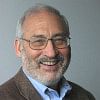
Joseph E Stiglitz
Nobel laureate in economics, and Professor at Columbia University. His most recent book, co-authored with Bruce Greenwald, is Creating a Learning Society: A New Approach to Growth, Development, and Social Progress.
Nobel laureate in economics, and Professor at Columbia University. His most recent book, co-authored with Bruce Greenwald, is Creating a Learning Society: A New Approach to Growth, Development, and Social Progress.
Rather than focusing on international conferences like COP, we should direct our energies towards negotiating agreements that can achieve progress in narrow, but crucial, economic sectors.
Rarely have the shortcomings of world leaders and existing institutional arrangements been so glaringly obvious.
Should we be surprised that so many people view the growing concentration of wealth with suspicion, or that they believe the system is rigged?
US President Joe Biden’s administration should be commended for its open rejection of two core neoliberal assumptions.
The aftershocks of the collapse of Silicon Valley Bank (SVB), while seemingly fading, are still reverberating around the world.
We desperately need free markets, but that means, above all, markets that are free from the stranglehold of monopoly and monopsony.
Anyone with any faith in the market economy knew that the supply issues would be resolved eventually; but no one could possibly know when.
In the name of taming inflation, central banks have set themselves on a path to cause a recession.
What was at first a trade skirmish—with US President Donald Trump imposing tariffs on steel and aluminum—appears to be quickly morphing into a full-scale trade war with China.
The trade skirmish between the United States and China on steel, aluminium, and other goods is a product of US President Donald Trump's scorn for multilateral trade arrangements and the World Trade Organization, an institution that was created to adjudicate trade disputes.
In 1967, riots erupted in cities throughout the United States, from Newark, New Jersey, to Detroit and Minneapolis in the Midwest—all two years after the Watts neighbourhood of Los Angeles exploded in violence. In response, President Lyndon B Johnson appointed a commission, headed by Illinois Governor Otto Kerner, to investigate the causes and propose measures to address them.
I have been attending the World Economic Forum's annual conference in Davos, Switzerland, where the so-called global elite convenes to discuss the world's problems, since 1995.
Never has a piece of legislation labelled as both a tax cut and a reform been received with as much disapproval and derision as the bill passed by the US Congress and signed into law by President Donald Trump just before Christmas.
A year ago, I predicted that the most distinctive aspect of 2017 would be uncertainty, fueled by, among other things, Donald Trump's election as president in the United States and the United Kingdom's vote to leave the European Union.
Fifteen years ago, I published Globalization and Its Discontents, a book that sought to explain why there was so much dissatisfaction with globalisation within the developing countries.
One of the important powers of any US president is to appoint members and heads of the many agencies that are responsible for implementing the country's laws and regulations and, in many cases, governing the economy.
Although America's right-wing plutocrats may disagree about how to rank the country's major problems—for example, inequality, slow growth, low productivity, opioid addiction, poor schools, and deteriorating infrastructure—the solution is always the same: lower taxes and deregulation, to “incentivise” investors and “free up” the economy.
Under President Donald Trump's leadership, the United States took another major step toward establishing itself as a rogue state on June 1, when it withdrew from the Paris climate agreement. For years, Trump has indulged the strange conspiracy theory that, as he put it in 2012, “The concept of global warming was created by and for the Chinese in order to make US manufacturing non-competitive.” But this was not the reason Trump advanced for withdrawing the US from the Paris accord. Rather, the agreement, he alleged, was bad for the US and implicitly unfair to it.